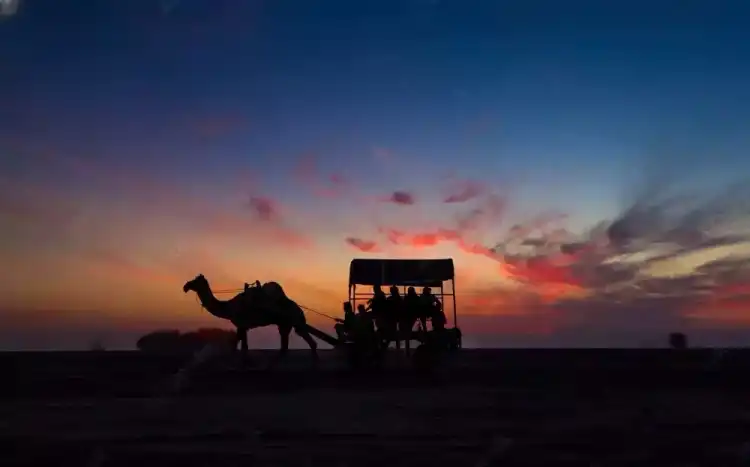Gujarat: Land of Diversity, Development, and Culture
Introduction
Gujarat, situated on the western coast of India, is a state of remarkable diversity, historical significance, and rapid economic growth. This comprehensive description, spanning approximately 2000-2500 words, explores the demography, culture, science and technology, art and culture, geography, history, notable poets and authors, cuisine, business, medical facilities, and administrative structure of Gujarat.
Demography
Gujarat's demography is marked by a mix of urban and rural populations, diverse communities, and a growing workforce. As of my last knowledge update in September 2021, the state had a population of approximately 63 million.
Urbanization
Gujarat has witnessed substantial urbanization, with cities like Ahmedabad, Surat, and Vadodara experiencing rapid growth and industrialization.
Communities
The state is home to a diverse population, including Gujaratis, Patel, Kshatriyas, Muslims, and various tribal communities.
Languages
Gujarati is the official language and widely spoken, but Hindi and English are also prevalent.
Religions
Gujarat is the birthplace of Mahatma Gandhi and holds religious significance for various communities. It has a diverse religious landscape, including Hinduism, Islam, Jainism, and Sikhism.
Culture
Gujarat's culture is a rich tapestry of traditions, festivals, and art forms.
Festivals
The state celebrates numerous festivals, such as Navratri, Diwali, and Uttarayan (Kite Festival), characterized by vibrant dance forms like Garba and Raas.
Music and Dance
Gujarati folk music and dance forms, such as Dandiya Raas and Bhavai, reflect the state's cultural vibrancy.
Art and Craft
Gujarat is renowned for its textile art, including Bandhani, Patola, and mirror work embroidery. The state is also known for traditional handicrafts like pottery and woodworking.
Science and Technology
Gujarat is at the forefront of scientific research, technological innovation, and industrial development.
Space Research
The state houses the Space Applications Centre (SAC) of ISRO, contributing to India's space exploration efforts.
Industrial Zones
Gujarat is home to several industrial zones, such as the Gujarat International Finance Tec-City (GIFT City) and the Dholera Special Investment Region, promoting economic growth and technological advancements.
Geography
Gujarat's geography is characterized by its diverse landscapes, including the coastal region, fertile plains, and arid deserts.
Arabian Sea Coast
The state has a long coastline along the Arabian Sea, supporting maritime trade and tourism.
Rann of Kutch
The Great Rann of Kutch, known for its white salt desert, is a unique geographical feature of the region.
Rivers
Major rivers like the Sabarmati, Narmada, and Tapi flow through the state, providing water for irrigation and industrial use.
History
Gujarat has a rich historical legacy, with a history of trade, maritime activities, and significant political movements.
Indus Valley Civilization
The region has archaeological sites that date back to the Indus Valley Civilization, including Lothal.
Mauryan and Gupta Empires: Gujarat was part of the Mauryan and Gupta empires, contributing to ancient India's cultural and historical heritage.
Freedom Movement
Mahatma Gandhi, the leader of India's independence movement, was born in Porbandar, Gujarat. The state played a crucial role in the struggle for freedom from British colonial rule.
Poet/Author
Gujarat has a literary tradition with poets and authors who have made notable contributions to Gujarati and Indian literature.
Narsinh Mehta
Narsinh Mehta, a 15th-century poet-saint, is celebrated for his devotional hymns and literary works.
Umashankar Joshi
Umashankar Joshi, a modern Gujarati poet, received the Jnanpith Award, India's highest literary honor.
Cuisine
Gujarati cuisine is celebrated for its vegetarian delicacies and a sweet-savory balance of flavors.
Dishes
Popular dishes include Dhokla, Thepla, Undhiyu, and Fafda.
Sweets
Gujarat is known for its sweets, such as Shrikhand, Mohanthal, and the iconic Gujarati thali, a combination of various sweets and savories.
Business
Gujarat's economy is diverse, with a strong industrial base, agriculture, and a growing services sector.
Industrialization
The state is an industrial powerhouse, with sectors like petrochemicals, textiles, and diamond polishing being major contributors to the economy.
Agriculture
Agriculture is a vital sector, with cotton, groundnuts, and pulses being important crops. The state's cooperative movement, exemplified by Amul, has revolutionized the dairy sector.
Textiles
Gujarat is a hub for textile manufacturing, including fabrics like Patola, Bandhani, and Khadi.
Medical Facilities
Gujarat has a well-developed healthcare infrastructure, including government and private medical facilities.
Government Healthcare
The state operates a network of government hospitals, medical colleges, and institutions like BJ Medical College in Ahmedabad.
Private Healthcare
Private hospitals and clinics offer multi-specialty healthcare services and are widely available.
Administrative Structure
Gujarat follows a parliamentary system of governance, with a Chief Minister as the head of the government.
State Government
The state government is responsible for various sectors, including education, health, and infrastructure. The Governor is the constitutional head, while the Chief Minister leads the elected government.
Panchayati Raj
Gujarat follows the Panchayati Raj system, which includes village councils and municipal corporations for rural and urban governance. Local self-government institutions play a crucial role in grassroots administration.
Judiciary
The state is under the jurisdiction of the Gujarat High Court, located in Ahmedabad. District courts, magistrate courts, and various tribunals handle legal matters at different levels.
Law Enforcement
Law and order in Gujarat are maintained by the Gujarat Police. The Director General of Police (DGP) is the highest-ranking officer overseeing the state police force. Specialized units address specific law enforcement needs.
In conclusion, Gujarat, with its rich history, economic dynamism, and cultural heritage, is a state of immense importance in India. The state's diverse cultural tapestry, literary contributions, and culinary traditions make it a unique and cherished part of the country. As Gujarat continues to grow as an economic and industrial powerhouse while preserving its rich traditions, it remains a symbol of progress and cultural richness in the western part of India.
